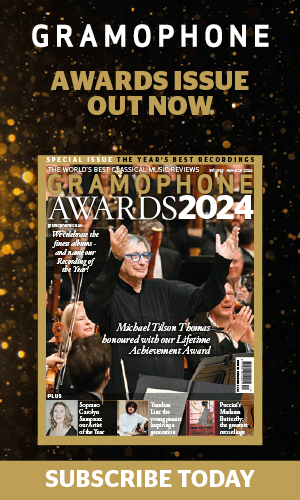Fauré's Pénélope
Tuesday, January 15, 2013

The Gramophone Choice
Jessye Norman sop Pénelope Jocelyne Talllon mez Euryclée Colette Alliot-Lugaz sop Alkandre Christine Barbaux sop Phylo Danièlle Borst sop Lydie Michèle Command sop Mélantho Norma Lerar sop Cléone Alain Vanzo ten Ulysse Jean Dupouy ten Antinoüs Paul Guigue bar Ctésippe Gérard Friedmann ten Léodés Philippe Huttenlocher bar Eurymaque José Van Dam bass Eumée François Leroux bar Pisandre Jean Laforgue Vocal Ensemble; Monte-Carlo Phllharmonic Orchestra / Charles Dutoit
Warner Classics 2564 68800-4 (124' • ADD • S/N). Buy from Amazon
The six years it took Fauré to complete his Pénélope have been multiplied no less than elevenfold for his 'poème lyrique' to reach the gramophone lists. Fauré has never been – and would never have wanted to be – a composer of vast popular appeal; Pénélope, with its rather pedestrian libretto and lack of stage action (until its violent ending), has not attracted opera-house managements; and its absence of big arias and detachable set-pieces has caused mere voice-fanciers to ignore it. Yet it is a work of outstanding quality, revealing strength as well as lyricism. Not coldly classical but warmly human, it concentrates (like Monteverdi's opera on the same subject) on the story of Ulysses's return, in disguise, to the wife who has lovingly waited 20 years for him, the attempt to bend his great bow by the importunate suitors she has kept at bay by a subterfuge, and Ulysses's eventual proclamation of his identity and slaughter of the detested parasites. Pénélope adopts a Wagnerian system of leading-motives (though the music, apart from the appearance of the Tristan chord, is far from being Wagnerian), and offers its singers, if not much depth of characterization, a great deal of expressive and gratefully written music. The love-theme, a variant of Fauré's favourite rising scale with a sharpened fourth (as in Lydia), is hauntingly beautiful.
The title-role, on which the opera largely depends, is splendidly sung: Norman noble and tender, exuding a lovable warmth; her upper register is radiant and she shows a wider range of colour, from absorbed thoughtfulness to open scorn of the suitors. As Ulysses Vanzo's singing is mellifluous and musical but insufficiently in character – he certainly sounds far too youthful and healthy to have deceived anyone (least of all his wife) into thinking him a weary old beggar ('qui touche au tombeau'). As the shepherd Eumée, van Dam takes full advantage of the lyrical quality with which Fauré has invested the role and makes the shepherd something of an aristocrat (his legato phrasing is remarkably fine). Huttenlocher as Eurymaque (along with the other suitors) perhaps drops his blustering too suddenly at Penelope's first appearance: so immediate a change of heart does not ring true. But the casting is good, except for an uncertain small-part shepherd in the new one.
Orchestrally the performance is splendid, so do investigate an unjustly neglected work which ranks not far below Debussy's Pélléas et Mélisande as a highpoint in the French lyric theatre.









